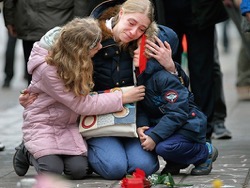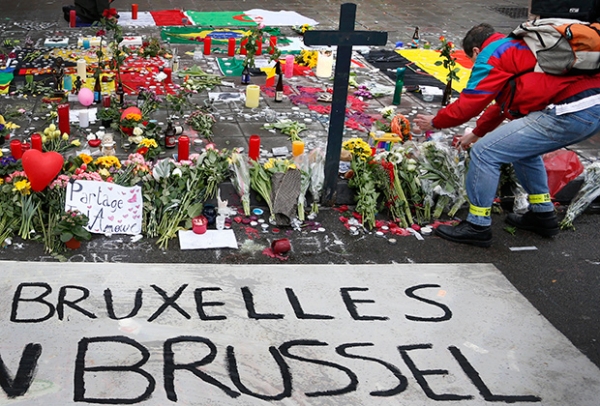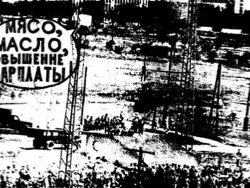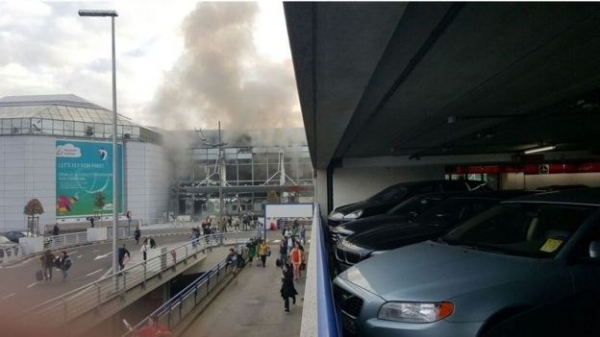
News of terror attacks lead to psychological trauma
The attacks committed on 22 March 2016 in Brussels, as with other such tragedies, brought not only death and injury but also psychological trauma to those who learned about the incident from the media. Joan cook, a Professor of psychology at Yale University, told Time, as the attacks overwhelm people emotionally and to whom reports of terrible accidents affecting stronger.
To see is to participate?
The anxiety arising from reports from the scene of tragic events, is not surprising. People in recent times are used in varying degrees to worry about their safety in public places. Airport, metro station, school, Church targeted by criminals can be anywhere and everyone knows it, which causes constant anxiety. Not all, however, realize that the terrorist attacks turn into full-fledged psychological trauma and for those who are thousands of miles from the scene of the tragedy, watching the chronicle with the help of the Internet, television and print media.
Post-traumatic stress disorder (PTR) can overtake anyone. In the world of information technology everyone who for quite a long time receives information about the circumstances and details happened with other troubles, deeply immersed in them, — faithful candidate of an AV.
The psychiatric definition of trauma as any occurrence that endangers the life, integrity and existence of the human body, or any damage caused intentionally. In addition, traumatic experiences are possible in the case when the person just became a witness to injury to someone else. Experts believe that people are not able to completely avoid involvement in the experiences of another. For the same reason to cause death or harm to another person — also, oddly enough, a traumatic event.
The role of media
The level of development of online media, social networks and other information sources is so high that watching a terrorist attack or other disaster through the monitor receives the maximum possible information, almost creating the effect of presence on the scene. First photos and videos taken by witnesses of the tragedy. Then professional reports, official statements.
Finally, it is the turn personal stories: the media talk about victims of the tragedy, publish photos, talk with relatives. They say also about the happy escape from trouble.
So, the next day after a series of attacks in Brussels on world press published stories of victims of state of emergency at the airport and the metro: for example, The Guardian and The Daily Mail published a report about a young mother from Peru who died from the explosion at the airport, and two of her three children-twins survived.

Photo: Francois Lenoir / Reuters
It is anticipated that these stories will help the reader to perceive the victims as victims abstract: learning about a person’s personality, more difficult to remain indifferent to the tragedy.
But some reports like this make too strong impression, and there are many. For example, according to Professor cook, in the U.S. up to 50 percent of the people susceptible to potentially traumatic events in the world.
No more tears
People reacting to the negative information excessively, it is considered excessively emotional. But cook believes the rest should not be judged strictly nervous and impressionable, because there are reasons why all people take news of terror attacks and disasters in different ways.
“Someone has a predisposition to cancer, diabetes, hypertension. And some are more vulnerable to mental disorders, which include AV,” explains cook.
With other AV factors — female gender, low intelligence and educational attainment, susceptibility to negative Outlook on life, family history of psychological and mental disorders.
Another important factor affecting the development of AV, lack of social support, that is, when man with whom to share thoughts and experiences.
Strategy for dark times
The psychologist emphasizes that the TPP has returned from the war the veteran and reviewing reports on the attack of the layman, of course, different intensity. But what disorder can arise in that, and in other situations, is undeniable.
In stressful periods of life, to which psychologist does and the stream of bad news, even more important than usual to lead a healthy lifestyle — get enough sleep, spend time in a pleasant company, not to forget active your leisure.








